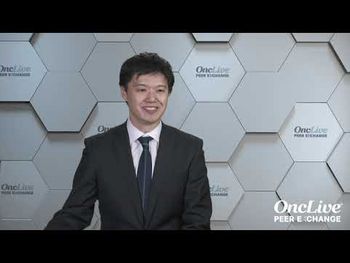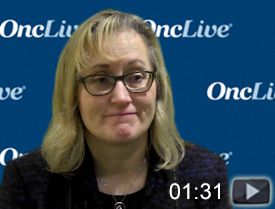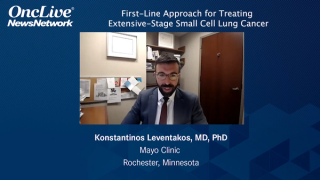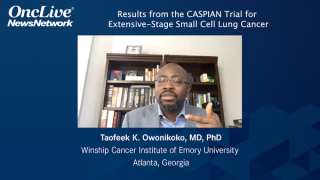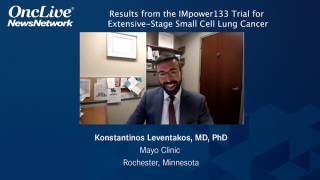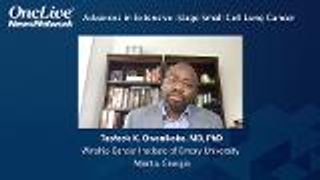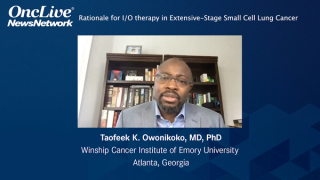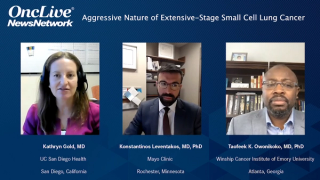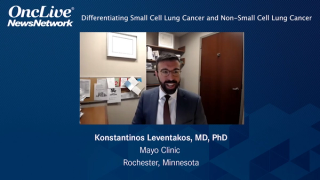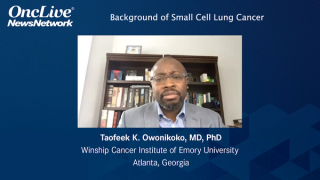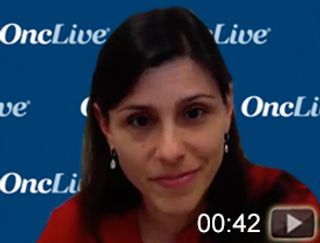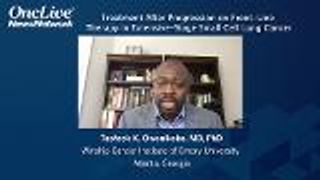
Lung Cancer
Latest News

Latest Videos

CME Content
More News

Tumor mutational burden has been shown in studies to predict response to immunotherapies in certain types of cancer and is being validated in clinical trials as a biomarker of response.

Pembrolizumab has emerged as a reliable frontline treatment option for patients with metastatic non–small cell lung cancer, but thoracic oncologists need to be aware of potentially severe immune-related adverse events.

Ardaman Shergill, MD, discusses the impact of tumor mutational burden, as well as RET and NTRK fusions, in the NSCLC paradigm.

Deepa S. Subramaniam, MBBS, MSc, discusses the complex and evolving treatment paradigm of BRAF- and ROS1-driven non–small cell lung cancer.

D. Ross Camidge, MD, PhD, director of thoracic oncology, University of Colorado, discusses mechanisms of resistance to targeted therapies in oncogene-driven non–small cell lung cancer.

The European Commission has approved brigatinib (Alunbrig) for the treatment of adult patients with ALK-positive non–small cell lung cancer who were previously treated with crizotinib (Xalkori).

Mary Jo Fidler, MD, discusses the latest developments in the treatment of patients with ALK-positive lung cancer.
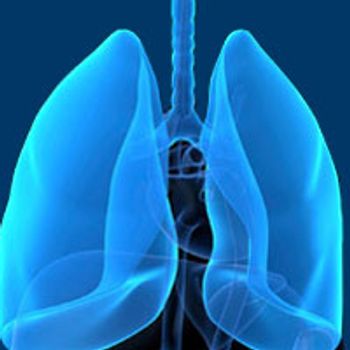
The combination of nivolumab (Opdivo) and ipilimumab (Yervoy) did not improve overall survival versus placebo as a maintenance therapy for patients with extensive-stage small cell lung cancer without disease progression following frontline platinum-based chemotherapy.
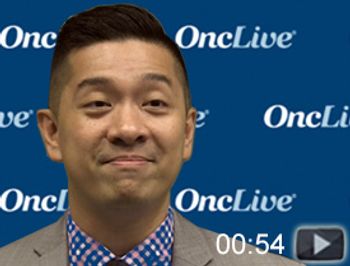
Alexander Drilon, MD, medical oncologist, clinical director, Early Drug Development Service, Memorial Sloan Kettering Cancer Center, discusses the FDA approval larotrectinib in NTRK-positive cancers.

Thomas Hensing, MD, discusses the emergence of immunotherapy in the stage III non–small cell lung cancer armamentarium, and questions that must be answered to build on this initial success.

Charles M. Rudin, MD, PhD, reflects on the latest developments in small cell lung cancer.
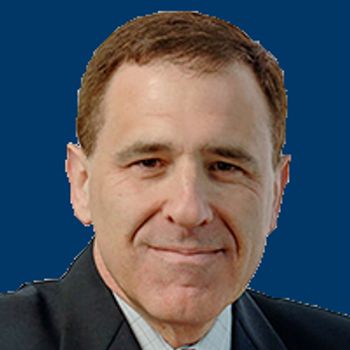
Lawrence E. Feldman, MD, discusses exciting new data surrounding immunotherapy combinations in lung cancer.
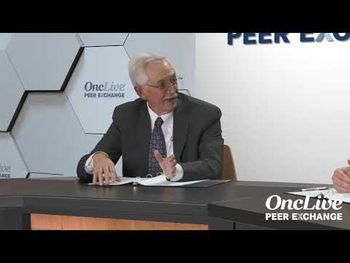
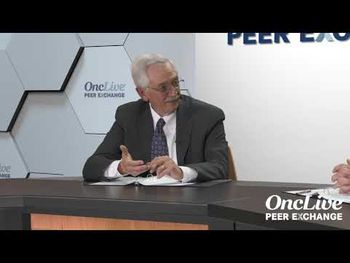
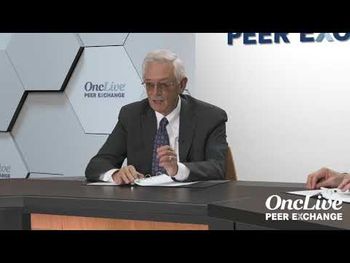
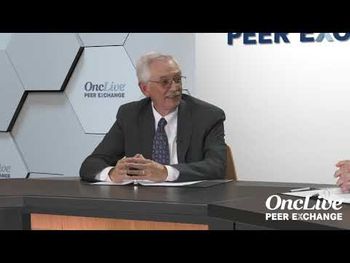
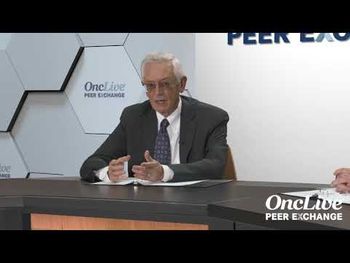
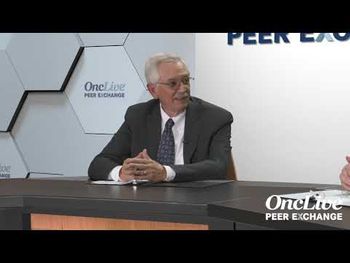
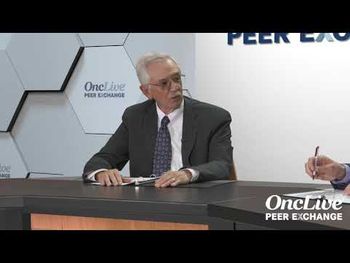
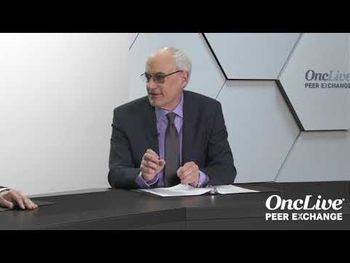

Roman Perez-Soler, MD, chairman of the Department of Oncology and chief of the Division of Medical Oncology at Montefiore Medical Center, discusses the current status of biomarkers of small cell lung cancer.

Pembrolizumab (Keytruda) has emerged as an effective frontline treatment option for select patients with metastatic non–small cell lung cancer, showing an overall survival advantage across 3 phase III clinical trials.
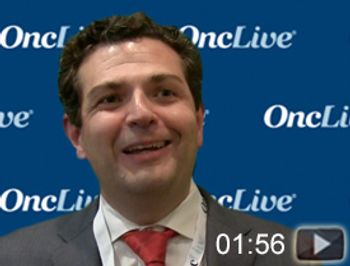
Missak Haigentz, MD, chief of Hematology and Oncology at Morristown Medical Center and medical director of Atlantic Hematology and Oncology for Atlantic Medical Group at the Carol G. Simon Cancer Center, discusses the potential of erlotinib (Tarceva) and bevacizumab (Avastin) in EGFR-mutant non–small cell lung cancer (NSCLC).

The frontline combination of durvalumab (Imfinzi) and tremelimumab did not induce a statistically significant improvement in overall survival compared to standard chemotherapy in patients with metastatic non–small cell lung cancer.
